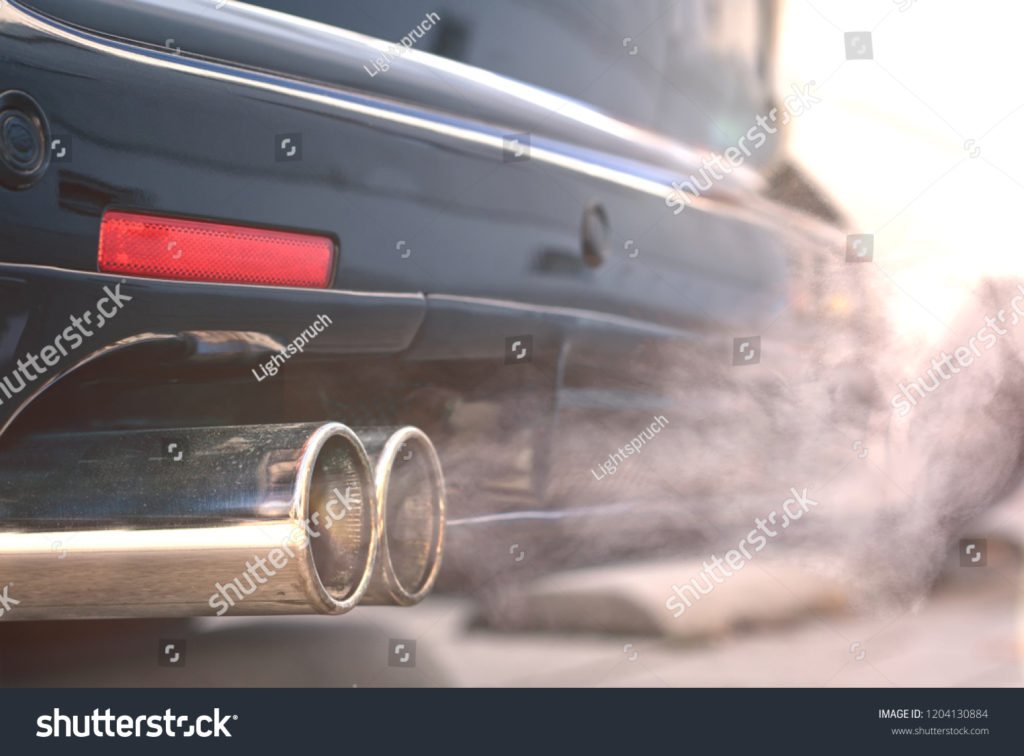
MERCEDES DIESEL EMISSIONS SCANDAL
If you bought, financed or leased any new or used Mercedes between 2009 and 2019, you could be due thousands of pounds in compensation. It costs nothing to join the Mercedes Pay Up campaign.
About the claim
More than 600,000 Mercedes drivers could be due compensation because we believe Mercedes installed special software (known as a ‘defeat device’) in certain diesel vehicles to cheat emissions tests. If we are right, Mercedes owners were mis-sold cars that are more polluting than the law allows and worth less than the cost they paid. Drivers were sold a combination of environmental impact and driving performance that was a fiction. Unable to meet international emissions standards, these cars should never have been allowed on the road.
Mercedes is accused of using ‘defeat devices’ similar to the ones used by Volkswagen in the ‘dieselgate’ scandal. If you’ve been affected, we believe you deserve compensation.
Are you eligible?


Why should you join the Mercedes Pay Up campaign?
We believe Mercedes cheated the emissions tests and failed their customers: They knew what the emissions rules were, and they developed software to get around them. It is time to hold them to account.
It costs absolutely nothing to join the group litigation against Mercedes.
If successful, each driver could be owed thousands of pounds in compensation.
What exactly did Mercedes do, and how did it harm their customers?
We believe that Mercedes installed ‘defeat devices’ in certain diesel cars designed to reduce emissions levels in a regulatory environmental test environment. The practical effect of a defeat device is that it can detect when it is in a test environment (because the tests have standard conditions which the defeat device is designed to identify) and tell the engine to reduce the pollution it is producing in order to pass that test. In doing so, the performance of the car is also reduced.
When the car is in normal driving conditions (i.e., most if not all of the time), it maintains optimal performance, and as a result the vehicle pumps out unlawful levels of NOx and other pollutants without the driver realising. Without passing these tests, the cars would not have been cleared to drive on UK roads and they do not meet the environmental and performance standards promised in the glove compartment handbook.
We believe that these affected vehicles pumped more harmful NOx into the atmosphere than the law allows. Public Health England estimates that NOx is a ‘major component’ of urban air pollution generally, leading up to 36,000 premature deaths per year.
Drivers were sold a combination of environmental impact and driving performance that was a fiction – it could never happen under normal driving conditions.
The cheat software Mercedes is alleged to have used is similar to the ‘defeat’ code deployed by VW, Audi, Skoda and SEAT in the ‘dieselgate’ scandal. The VW group has since paid out hundreds of millions of pounds in settlements in the US, Germany and Australia. There is also a group litigation in the UK against the VW group where the trial is due to be heard in January 2023. We intend to apply for a Group Litigation Order against Mercedes, so ensure to sign up to ensure you do not miss your chance to receive compensation!
About the Group Litigation Order process
The premise of a Group Litigation Order is simple. If you are an affected driver and choose to sign up for the campaign, you will pay absolutely nothing, even in the event of a loss at court.
You and the other claimants will be represented by Milberg London LLP, a global law firm that has vast experience in handling similar claims.
If the legal claim is successful, the agreement you sign will mean that you benefit from both the final damages and a share of the legal costs paid out by Mercedes.
Meet your legal team

James Oldnall
Managing Partner

Edward Cardington
Partner

Polly Blenkin
Associate Partner

James Taylor
Associate Partner
A defeat device is any element of design, software or hardware in a car which detects different vehicle conditions (e.g. temperature, vehicle speed, engine speed etc) and adjusts or disables the car’s emission control system. In the case of Mercedes (and VW and Vauxhall) the manufacturers appear to have written software into the computer unit that controls the engine.
The practical effect of a defeat device is that it can detect when it is in a test environment (because the tests have standard conditions which the defeat device can be designed to identify) and tell the engine it needs to reduce the emissions it is producing in order to pass that test.
By contrast, when the car is outside of a test environment (i.e., most if not all of the time), it recognises that and the vehicle pumps out unlawful levels of NOx and other pollutants without the driver realising.
The reason for using a defeat device appears to have been that the engines in question could not meet the emissions test and produce an acceptable consumer driving experience.
Assuming the claim succeeds, drivers that purchased, financed or leased a new or used diesel Mercedes between 2009 and 2019 did so on a false premise and may be able to receive compensation.
These consumers had a reasonable expectation their car would meet certain environmental and performance standards. That’s what they were promised in the glove compartment handbook.
The reality was that the cars were far more polluting than drivers were told. They pumped more harmful substances like NOx into the atmosphere, which are known to cause thousands of premature deaths a year in the UK. Unable to meet international emissions standards, these cars should never have been on the road.
The cars would also be worth less than the drivers paid for them (because Mercedes did not deliver an environmentally compliant car which also met performance expectations) and are worth even less today in the second-hand car market. Drivers were sold a combination of environmental impact and driving performance that was a fiction – it could never happen under normal conditions and Mercedes knew that.
Put simply, Mercedes did not provide the car drivers paid for.
We estimate that over 600,000 UK drivers have purchased or leased a new or second-hand Mercedes during the period when we say Mercedes was cheating the tests. Each of these motorists could be eligible to claim compensation.
We urge drivers to check whether they could be in line for compensation by entering their registration number at www.mercedes-payup.co.uk.
Drivers who bought a second-hand car from a registered Mercedes dealership may be eligible for compensation too. If in doubt, check it out on our website. Their losses may be lower than motorists who paid more for a new car.
This will depend on a range of factors including how much drivers paid for their car and how much harm the Court determines Mercedes caused by its behaviour. Under consumer protection law motorists could recover between 25% and 75% of the price of their vehicle depending on the severity of the misleading or aggressive practice or the difference between the market price of the product at the time of sale, and the price paid. This could be many thousands of pounds, even for second-hand owners.
Milberg London LLP intends to bring this claim via a Group Litigation Order (or ‘GLO’). A GLO is a procedural mechanism that allows lots of claims with “common or related issues” of fact and/or law to be managed together as one case. Whilst parties can apply for a GLO to be made, it is up to the Court whether that is the most appropriate way to manage the claim.
The current VW litigation going through the Courts is proceeding under a GLO and Milberg London think it should be used for the Mercedes claim as well.
Milberg London are representing their clients through a Damages Based Agreement (‘DBA’). A DBA means all of Milberg London’s fees depend on the success of the case and the level of those fees is determined as a percentage of the compensation recovered. It also provides that a steering committee of representative claimants have authority to instruct the lawyers on behalf of the group. This is because it would be impossible for Milberg London to take instructions from everyone individually.
No.
The lawyers only get paid if there is a win at the end of the case (see above). If the claim is successful, the lawyers are paid from the compensation recovered from Mercedes. If the case is unsuccessful, the customers pay nothing.
Any costs that need to be paid up-front or along the way (e.g. barristers, Court fees and experts) are covered by either Milberg London on a self-funding basis or by a litigation funder. The litigation funder is paid back at the end of the case out of the lawyers’ share of the compensation – not the consumer’s (see below).
The lawyers are Milberg London, part of an international group of firms with significant experience of consumer and group litigation.
At this stage, Milberg London are self-funding the claim with the support of their affiliates in the US. As and when needed, a litigation funder will be brought in to support the claim.
Our legal team are working hard behind the scenes to progress your claim and are making good headway. We will endeavour to provide you with regular updates every 6 to 8 weeks with developments happening in your case.
In addition, you can always get in touch with your Case Manager for an update, email [email protected] or call us on 020 3824 6541.
There are a number of reasons why a vehicle may be ineligible:
It falls outside the relevant time period
It is not a model we have identified as being affected by the diesel emissions scandal
We have not been able to validate your claim against the evidence available to us through public sources and/or through the documents you have provided us with
NB. You will need to look at the relevant vehicle details and identify why a claim has been rejected on Litify. If you are unsure, ask Steve to confirm. This is a factual rather than legal question.
Legal enquiries
To contact Milberg London please call +44 (0)20 3824 6541 or email [email protected]
Media enquiries
For any media enquiries please contact [email protected]







